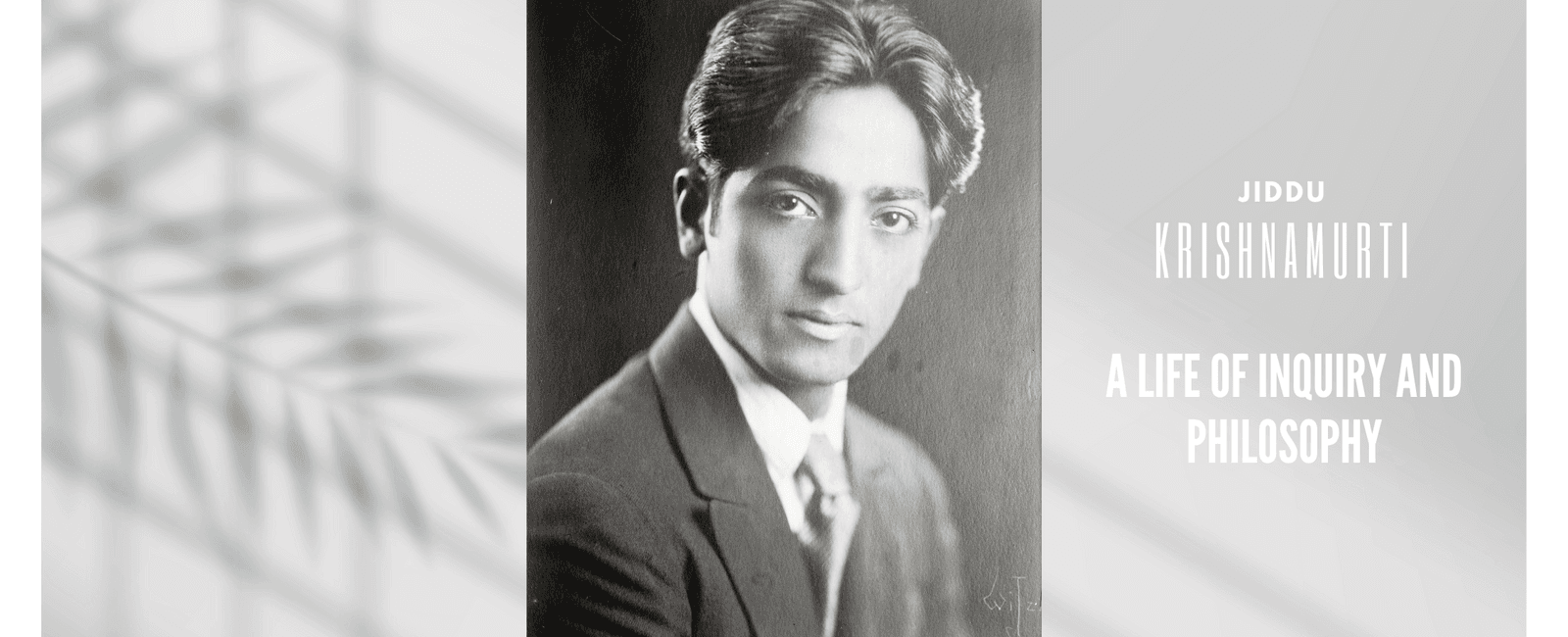
Who was Jiddu Krishnamurti

Table Of Contents
Introduction
Jiddu Krishnamurti (1895–1986) was a profound philosopher, speaker, and writer who challenged conventional thinking on spirituality, education, and the nature of human existence. Born in Madanapalle, India, Krishnamurti emerged from humble beginnings to become a significant figure in modern philosophical discourse, advocating for a radical transformation in how individuals perceive and engage with the world. His life’s work wasn’t merely about sharing ideas but an exploration of the deep truths that connect all human beings.
Early Life and Theosophical Background
Born into a Brahmin family, Krishnamurti’s early life took a dramatic turn when he caught the attention of Charles Leadbeater, a prominent member of the Theosophical Society. Leadbeater believed Krishnamurti was destined to be the “World Teacher”—a spiritual figure expected to lead a new spiritual awakening. Under the guidance of the Theosophical Society, Krishnamurti received a Western education and was introduced to various spiritual traditions to prepare him for this role.
However, in 1929, Krishnamurti made a pivotal decision that would shape his legacy. In a powerful statement, he renounced the title of “World Teacher” and distanced himself from the organization that had nurtured him. He famously declared that “truth is a pathless land,” emphasizing that the understanding of truth cannot be confined to organized religions or belief systems. This renunciation was not an act of rebellion but a profound commitment to encourage individuals to seek their own spiritual path.
Philosophical Themes
Krishnamurti’s teachings focused on several core themes, many of which remain deeply relevant today.
Freedom from Thought
Krishnamurti argued that much of human suffering stems from conditioned thought patterns that dictate our responses to life. According to him, true freedom arises when we observe our thoughts without attachment. Picture sitting quietly and letting your thoughts drift by like leaves on a river. This practice of detached observation can liberate the mind from its incessant, overwhelming noise.
The Nature of Relationships
Krishnamurti believed that conflict in relationships often arises from the ego and self-centered desires. He urged people to look inward and understand themselves to cultivate relationships free from dependency and illusion. When we approach others without preconceived notions or demands, genuine connections can form, fostering deeper understanding and compassion.
Awareness and Observation
Krishnamurti advocated a form of meditation that involves observing one’s thoughts and emotions without interference. This heightened awareness brings clarity, allowing individuals to better understand their inner workings. Imagine experiencing a moment of frustration and instead of reacting impulsively, you pause to observe your feelings. This practice can reveal insights that would otherwise remain hidden.
Education
Krishnamurti’s vision of education extended beyond mere knowledge transfer; he believed it should foster holistic development. In 1962, he founded schools in India, the UK, and the USA, aimed at nurturing creativity, critical thinking, and emotional intelligence. For Krishnamurti, education was about planting seeds in fertile soil, helping children not just learn but grow into thoughtful, self-aware individuals.
Global Influence
Krishnamurti’s ideas resonated with a wide array of people across the world. He traveled extensively, engaging in thought-provoking dialogues with philosophers, scientists, and spiritual seekers. One of his most notable discussions was with David Bohm, a renowned physicist. Together, they explored the connection between science and spirituality, suggesting that the two realms were not as separate as commonly believed. Their conversations emphasized the need for a new understanding of thought and perception.
Legacy
Krishnamurti’s teachings have left a lasting impact in fields such as psychology, education, and spirituality. His books, including The First and Last Freedom, Commentaries on Living, and Freedom from the Known, continue to inspire readers seeking deeper self-understanding. At the heart of his legacy lies the importance of self-inquiry—the belief that true transformation must come from within. Instead of following pre-established doctrines, Krishnamurti urged people to explore their thoughts and question their beliefs.
Conclusion
Jiddu Krishnamurti’s life and teachings challenge us to reconsider our understanding of truth, consciousness, and existence. By emphasizing direct experience over second-hand knowledge, he opened doors for individuals to explore their potential and seek a deeper understanding of themselves and the world around them. His philosophical insights remain as relevant today as ever, offering guidance to those in search of authenticity amidst life’s complexities. Engaging with his teachings may inspire you to embark on your journey of inquiry and self-discovery.
Related Posts




Quick Links
Legal Stuff



